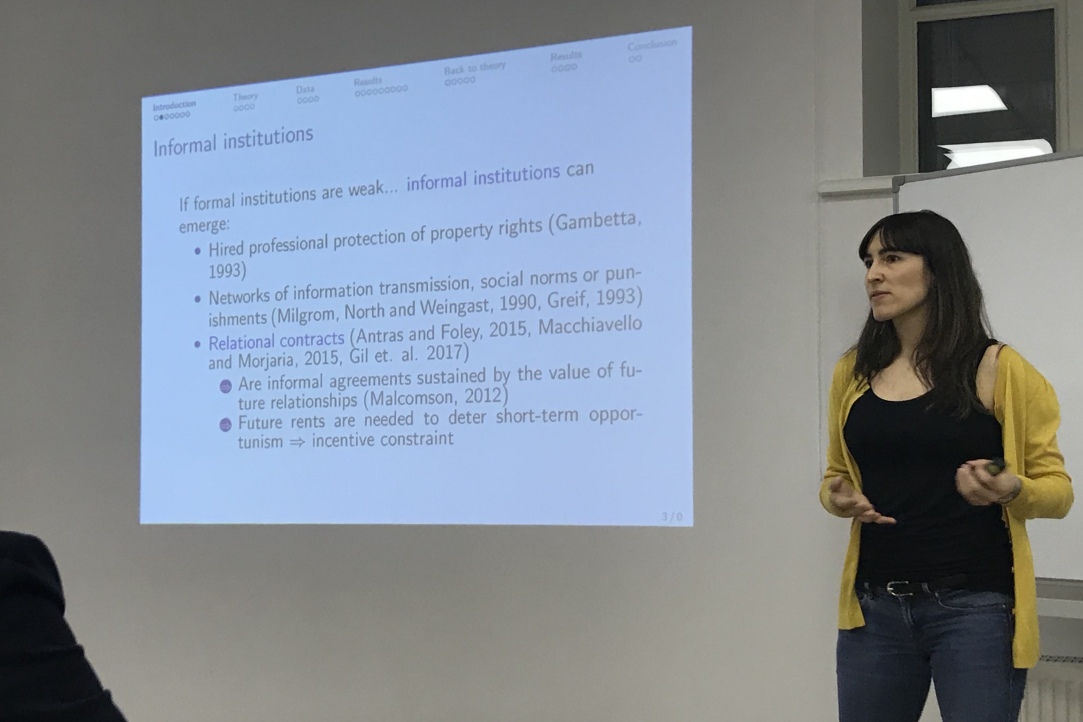In countries with weak institutions governments can sustain self-enforcing long-term relationships with private oil & gas companies
Marta Troya-Martinez presented a joint research with Radoslaw Stefanski and Gerhard Toews "Institutions and Dynamic Relational Contracts in the Oil & Gas Industry" on CInSt research seminar on February 20th.

International contracts are difficult to enforce, especially in countries with weak institutions. Thus, oil rich countries can hold up international oil firms by renegotiating taxes once the investment is sunk. If future gains from trade exist, countries can devise a self-enforcing agreement instead. We use elections to show that governments in countries with weak institutions indeed face a binding self-enforceability constraint, while countries with strong institutions do not.
In countries with weak institutions, incumbent governments, facing a non-zero probability of losing power, increase taxes by 8pp in the year of the election to satisfy the self-enforceability constraint. A self-enforcing agreement would require investment and taxes to be backloaded. We show that contracts in countries with weak institutions seem to be relatively more back- loaded than those in countries with strong institutions.
To read more, follow the link.
